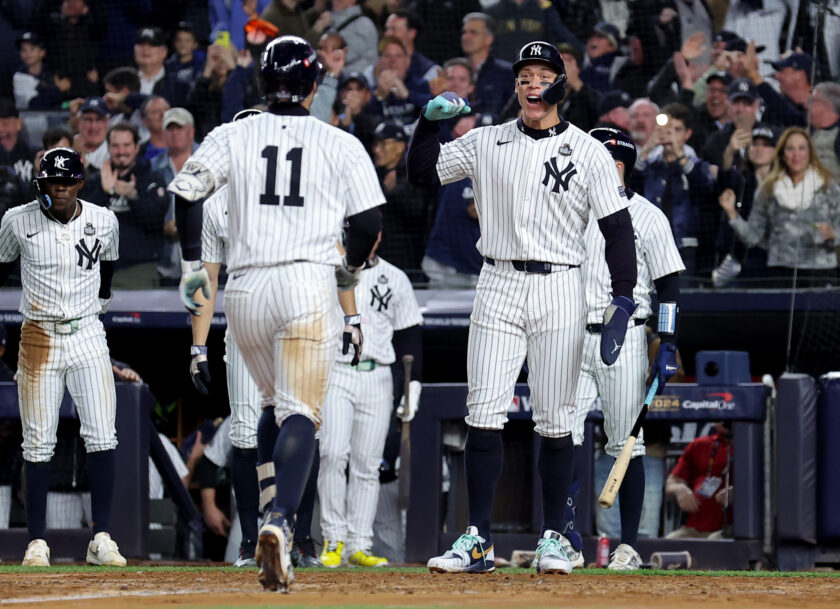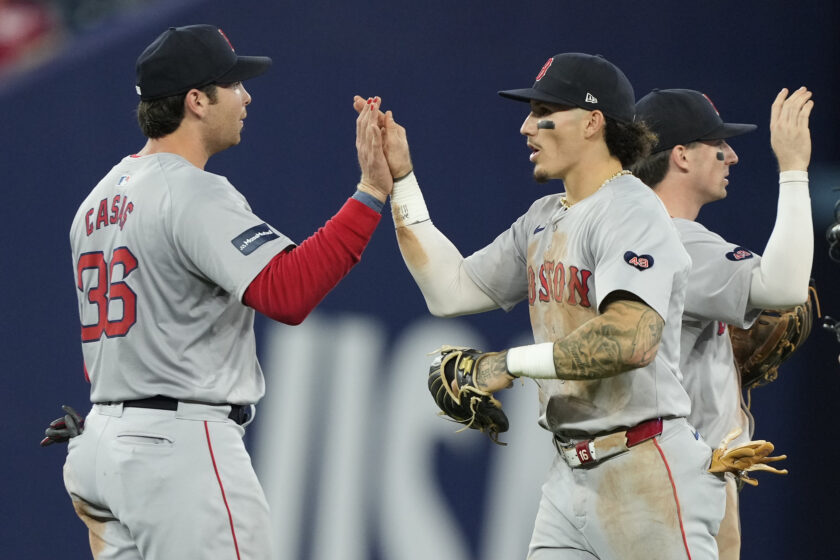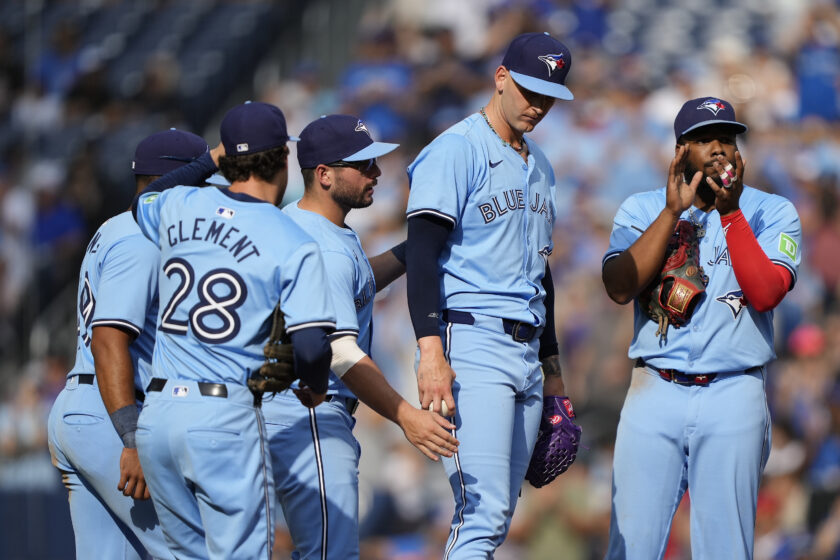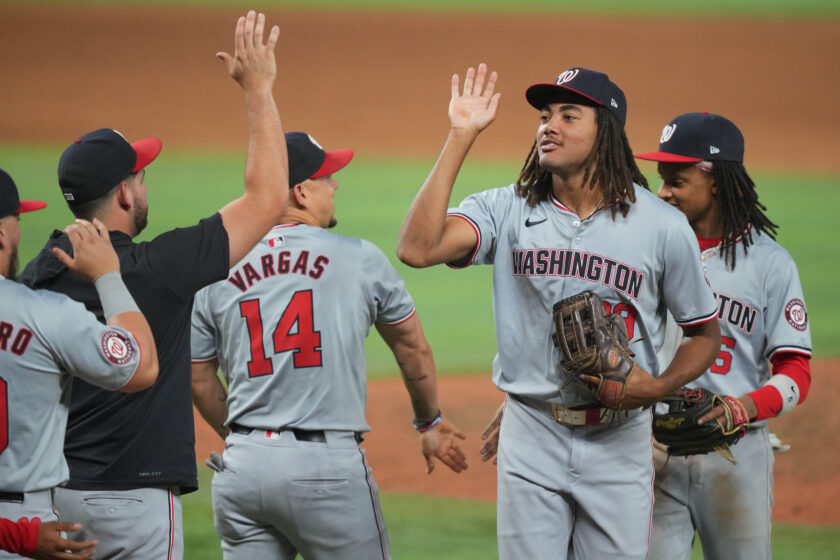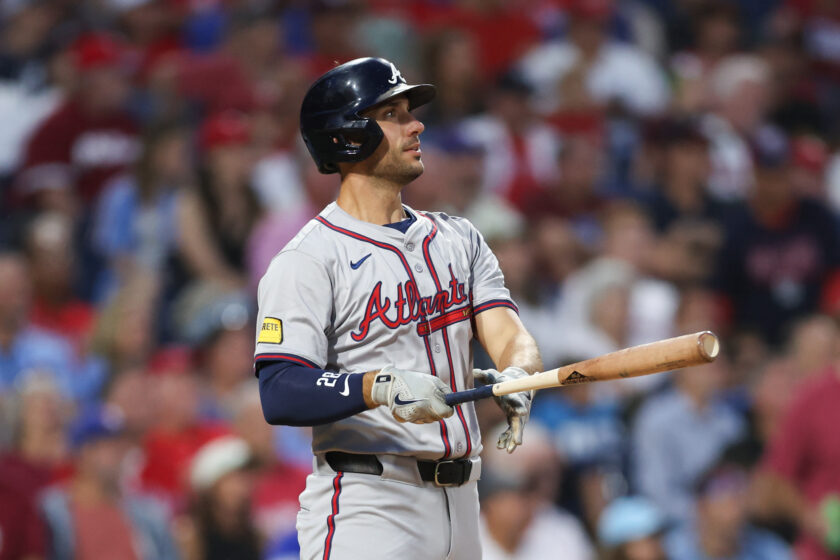Jackie Robinson and the historic 1947 MLB season, Part 1
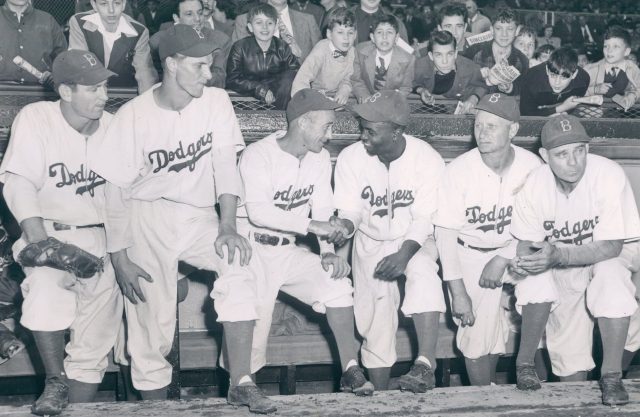
April 15th, 2021 marks the 74th anniversary of the day Jackie Robinson broke the color barrier and become the first African-American to play in a major league baseball game. In celebration, this is the first part of a three-part series on the events that took place during the 1947 season.
In honor of Jackie Robinson day, ESNY is re-publishing an exclusive three-part series celebrating his historic 1947 season.
Entering Spring Training of the 1947 season, Brooklyn Dodgers manager Leo Durocher was looking forward to his ninth season leading the team. He knew the season would be especially challenging since Branch Rickey signed Jackie Robinson to a contract on October 23, 1945.
Robinson broke camp with the Dodgers in spring of 1946. Rickey had already decided he was going to spend that first season with the Dodgers minor league team in Montreal. On March 17, 1946, the Montreal Royals faced the Dodgers at Citi Island Park with Robinson in the lineup, marking the first appearance of an integrated team in organized baseball this century. It would also be the first game Robinson played as a member of the Brooklyn organization. Over 4,000 fans attended the game, including almost 1,000 African-Americans.
Although going hitless in his first game against the Dodgers, he did score a run and played flawlessly in the field. In the next game, he collected three hits and was on his way to a magnificent 1946 season.
Despite being the first African-American to break into the minor leagues, Robinson was treated with respect in Montreal. The city grew to love him and he, in return, it. However, it was a different story when he went on the road.
Robinson officially played in his first regular season game on April 18, 1946, in Jersey City. He finished 4-5 with four runs, a home run, four RBI and two stolen bases.
Robinson dominated his season in Montreal. He led the league in batting average (.349), runs (113) and stolen bases (40). The Royals finished with a 100-54 record on the season. His excellent postseason play, which included hitting .400 in the Governors’ Cup Championship, helped Montreal defeat American Association champion Louisville Cardinals in the Little World Series. When spring training started in 1947, everyone was anticipating Robinson joining the big-league team.
View this post on Instagram
Robinson had plenty of opposition concerning him joining the major leagues. First, the 15 other owners voted against the move. However, Rickey had a powerful ally that had the power to overrule the owners. Baseball’s new commissioner, Happy Chandler who took over for Judge Kenesaw Mountain Landis in 1945, sided with Rickey because, among other reasons, he said doing otherwise would have made it difficult to explain his decision when he met his “maker.”
Upon joining the team in spring training, Robinson had to now confront the issue of racism among his teammates. The Alabama born Dixie Walker, who was a favorite among the Brooklyn fans and a three-time all-star who had averaged 185 hits and a .324 average over his previous three seasons, started a petition to have Robinson removed from the roster. Some of the other Southern-born players signed on as well.
Having a manager like Durocher at the helm to handle such distractions paid immediate dividends. Robinson was going to be a Dodger, that he would help put money in their pockets and that, furthermore, more black players were on their way. Durocher put his foot down, letting the team know that color did not matter, and he didn’t care if he had “stripes like a zebra” that the best players would play regardless of their skin color. He closed the meeting by saying that “If any of you cannot use the money, I will see that you are all traded”.
Once Robinson saw that he had Durocher’s backing and that he believed in him, the petition ended, and he was able to focus on playing ball. Durocher’s ability to handle the press as well was very helpful to Robinson in that Durocher was very open and brash with the media and was able to deflect some of the attention away from Robinson.
Durocher also was ready for baseball to be integrated and was the perfect man for the job of manager in that first season. As early as 1939, he had told a reporter at the Daily Worker that he wanted to draft “Negro” players from Cuba. He saw the future of baseball early.
Durocher’s own introduction to baseball was helped by an African-American friend, David Redd, who encouraged him to try out for the Hartford baseball team, which at that time was semi-Yankee farm club. Fast forward a few years later and Durocher is teammates with Babe Ruth on the New York Yankees 1928 World Series Champions.
Durocher and Robinson knew that they were the perfect pair to venture through the 1947 season with.
In my next article, I will look at the events that surrounded Leo Durocher as the season approached.
Mark Everett Kelly, formerly of ESPN, Mark Everett is a 2-time Emmy Winner that had to retire from ESPN in 2008 due to side effects of cancer treatment. Since then Mark has been active as a Public Speaker, Author and Blogger. He is a Sports History Expert and his speeches inspire many who fight daily setbacks to pursue their goals.
Mark occassionally writes for ESNY. He is the author of "My Scars Tell A Story" which highlights his endless battle fighting the side effects of cancer treatment. He also blogs on his website, ckmagicsports.com about "Living As A Cancer Survivor". Mark also does not hide that he has a personal relationship with Jesus. He despises judgemental people and his speeches encourage and speak up for those who can't speak for themselves.

